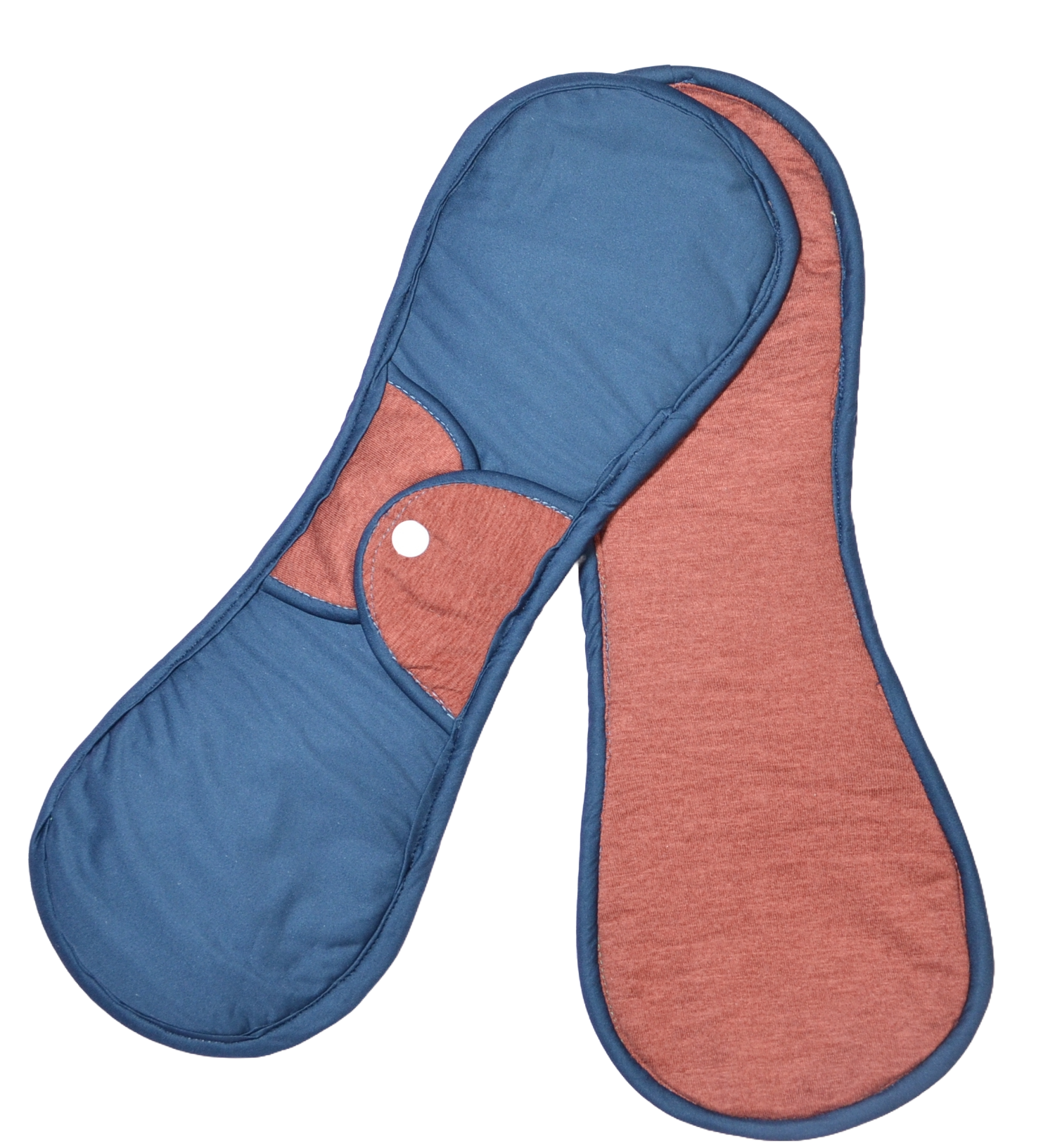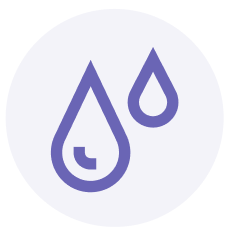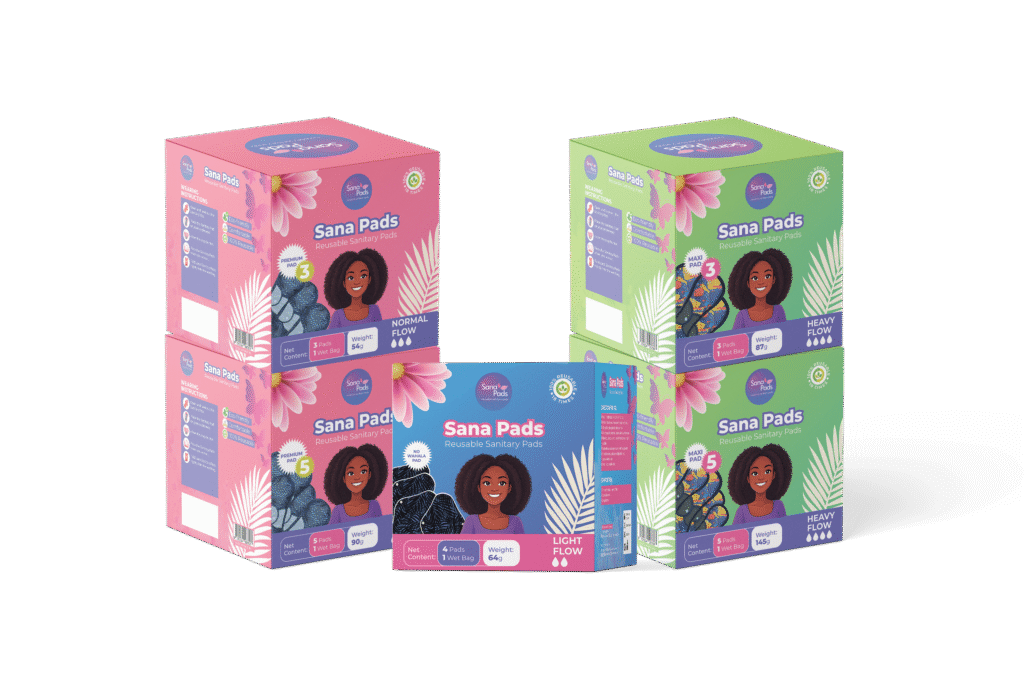Government Sanitary Pad Initiatives in Nigeria: What Works?
Imagine being 14 years old and facing a choice no child should ever make: miss school for a week every month, or risk the embarrassment of bleeding through makeshift materials. Unfortunately, this isn’t imagination for millions of Nigerian girls—it’s their reality. However, across Nigeria, government initiatives are beginning to change this narrative, and the results are more promising than many realize.
From Lagos State’s comprehensive school programs to the Federal Government’s support for local production, Nigeria is slowly but surely building a framework that could end period poverty for good. Moreover, the most successful initiatives share common elements that other states and organizations can replicate. Let’s explore what’s actually working and how you can be part of the solution.
The Reality of Period Poverty in Nigeria Today
Period poverty affects approximately 37 to 50 million women and girls across Nigeria, making it one of the most pressing yet under-discussed public health challenges in the country. Consequently, these numbers represent more than statistics—they represent dreams deferred, education interrupted, and potential unrealized.
The situation has become even more challenging recently. Rising inflation has pushed the cost of disposable sanitary pads beyond the reach of many families. As a result, girls are increasingly resorting to unsafe alternatives like cloth rags, leaves, or newspaper, which expose them to serious infections and health complications.
Furthermore, the impact extends far beyond individual health. Research shows that at least 24% of Nigerian girls miss school during their menstrual cycle due to lack of facilities, adequate sanitation, or fear of stigma. This absenteeism directly affects their academic performance and long-term educational outcomes. Additionally, many girls eventually drop out entirely when the monthly disruption becomes too much to bear.
The ripple effects touch entire communities. When girls miss school, they’re more likely to face early marriage, teenage pregnancy, and limited economic opportunities. Therefore, addressing period poverty isn’t just about health—it’s about breaking cycles of poverty and inequality that have persisted for generations.
Government Efforts Making a Real Difference
Despite these challenges, government initiatives across Nigeria are creating meaningful change. Most importantly, these programs demonstrate that political will, combined with strategic partnerships, can transform lives on a significant scale.
Federal Government's National Policy on Menstrual Hygiene Management
In 2018, Nigeria took a major step forward with the launch of the National Policy on Menstrual Hygiene Management. This comprehensive framework outlines strategies for improving menstrual health education, promoting hygiene products, and ensuring adequate sanitation facilities in schools. Moreover, the policy specifically emphasizes supporting local production of affordable sanitary pads.
The Federal Government’s commitment goes beyond policy documents. As the Minister of Women Affairs, Hajia Imaan Sulieman-Ibrahim, recently stated at a Menstrual Health and Hygiene Day event: “Millions of Nigerian girls still face period poverty—missing school, enduring shame, or even dropping out due to lack of pads and proper facilities.” However, she emphasized that partnerships with NGOs, educators, and local manufacturers are changing this narrative.
This federal leadership creates an enabling environment for state and local initiatives. Furthermore, it signals to international donors and NGOs that Nigeria is serious about addressing menstrual health challenges systematically rather than through scattered efforts.
State-Level Success Stories
While federal policy provides the framework, state governments are where real implementation happens. Several states have emerged as leaders, demonstrating different approaches that work in various contexts.
Lagos State has been particularly proactive in addressing menstrual health in schools. Their comprehensive program includes not only distributing sanitary pads to female students but also conducting menstrual health awareness campaigns. Importantly, the program has been linked to measurable increases in school attendance rates among girls.
Similarly, Anambra State has focused on public schools, recognizing that government institutions serve the most vulnerable populations. Their systematic distribution program ensures that girls in public schools have consistent access to menstrual products throughout the academic year. Additionally, they’ve invested in improving school sanitation facilities to support dignified menstrual hygiene management.
The Federal Capital Territory (FCT) has taken a collaborative approach, partnering with organizations like the Tabitha Cumi Foundation. These partnerships have reached over 1,600 girls across the FCT, Lagos, and Benue States. Moreover, innovative elements like braille menstrual hygiene manuals for blind girls demonstrate how thoughtful implementation can ensure no one is left behind.
The Role of Universal Basic Education Commission (UBEC)
Dr. Safiya Tamanuwa, Deputy Director of Placements and the Gender Unit at UBEC, has championed a holistic approach that goes beyond simple product distribution. Her framework recognizes that sustainable change requires community engagement, not just government action.
“When your eyes are opened to something, you no longer have an excuse to ignore it,” Dr. Tamanuwa explains. Her approach emphasizes engaging Parents Teachers’ Associations (PTAs) and School-Based Management Committees (SBMCs) as essential partners in menstrual health education.
This community-centered approach addresses one of the biggest challenges in menstrual health programming: cultural resistance. By involving parents and community leaders, UBEC’s initiatives create local ownership and reduce stigma. Furthermore, they ensure that menstrual health education becomes part of the school culture, not just an occasional intervention.
Our Reusable Sanitary Pads
Light Flow
Thinner and ligher pad designed for
the last days of your period.
Contains leakproof layer at the back.

Normal Flow


What Makes These Programs Actually Work
Successful government sanitary pad initiatives share several key characteristics that distinguish them from well-intentioned but ineffective programs. Understanding these success factors can help other states and organizations design more impactful interventions.
Local Production and Partnerships
The most sustainable programs prioritize supporting Nigerian manufacturers and local supply chains. This approach offers multiple benefits beyond simply providing products. First, it keeps money within the local economy, creating jobs and building capacity. Second, it reduces long-term costs by eliminating import duties and shipping expenses. Third, it ensures cultural appropriateness and local relevance in product design.
Supporting reusable sanitary pads, like those produced by companies such as Sana Pads, creates even greater long-term value. While the initial investment per girl might be higher, reusable pads last for years with proper care. Consequently, the cost per use becomes significantly lower than disposable alternatives. Moreover, reusable pads reduce environmental waste—a consideration that’s becoming increasingly important as Nigeria grapples with plastic pollution.
Local partnerships also enable more responsive supply chains. When problems arise, local manufacturers can adapt quickly rather than waiting for international supply chains to respond. Additionally, local companies understand cultural preferences, sizing needs, and use patterns better than international suppliers.
Beyond Just Distribution: Education and Infrastructure
The most effective initiatives recognize that simply handing out sanitary pads isn’t enough. Without proper education and infrastructure, even high-quality products won’t solve the underlying challenges girls face.
Comprehensive menstrual health education addresses myths and misconceptions that contribute to stigma. For example, many girls don’t understand their menstrual cycle or know how to properly use sanitary products. Therefore, education programs that explain the biological process, hygiene practices, and product options empower girls to make informed decisions about their health.
Infrastructure development is equally critical. In many Nigerian schools, especially in rural areas, girls lack private, clean spaces to change sanitary products. Without proper facilities, even the best products become difficult to use effectively. Successful government programs therefore invest in improving school sanitation facilities alongside product distribution.
Teacher training is another essential component often overlooked in simpler programs. When teachers understand menstrual health and feel comfortable discussing it, they become valuable resources for students. However, this requires addressing teachers’ own discomfort and misconceptions about menstruation.
Community Engagement and Male Involvement
Breaking down stigma requires changing attitudes across entire communities, not just among girls and women. The most successful programs intentionally engage boys and men as allies rather than treating menstruation as a women-only issue.
“Men and boys must be enlightened so they can support their sisters and daughters,” emphasizes Dr. Tamanuwa. This inclusive approach helps create supportive environments where girls feel comfortable seeking help when they need it. Furthermore, when boys understand menstruation as a normal biological process, they’re less likely to tease or shame their female classmates.
Religious and traditional leaders play crucial roles in community acceptance of menstrual health programs. By engaging these influential voices early in program design, initiatives can navigate cultural sensitivities more effectively. Additionally, community leaders can help frame menstrual health support as aligned with traditional values of caring for daughters and ensuring their success.
Learning from Global Success Stories
Nigeria’s government initiatives can draw valuable lessons from countries that have successfully addressed period poverty at scale. These international examples demonstrate what’s possible with sustained political commitment and strategic implementation.
Kenya's Free Sanitary Pads Law
In 2017, Kenya enacted groundbreaking legislation ensuring all schoolgirls receive free sanitary pads. This law represents one of the most comprehensive government responses to period poverty globally, and its results offer important insights for Nigeria.
The impact has been measurable and significant. School attendance rates among girls have increased noticeably since implementation. More importantly, academic performance has improved as girls no longer miss critical instruction time due to their periods. Teachers report that girls are more confident and engaged in classroom discussions when they’re not worried about menstrual accidents.
Kenya’s approach demonstrates the power of making menstrual health support a legal right rather than a charitable service. This framework creates sustainable funding mechanisms and ensures consistent implementation across regions. For Nigeria, this suggests that federal legislation mandating menstrual health support could provide the backbone for more systematic interventions.
Uganda's AFRIpads Model
Uganda’s success with AFRIpads demonstrates how government-NGO partnerships can create sustainable, locally-driven solutions. This initiative combines local manufacturing with comprehensive education and distribution programs, creating a model that Nigeria can adapt to local contexts.
The AFRIpads approach prioritizes reusable products, which align well with both economic and environmental sustainability goals. By supporting local manufacturing, the program creates jobs while building long-term capacity. Furthermore, the focus on reusable products means that initial investments continue providing value for years.
Uganda’s experience also highlights the importance of user education and ongoing support. Simply providing reusable pads isn’t enough—girls need to understand proper care and maintenance to maximize the products’ lifespan and effectiveness. Therefore, successful programs include follow-up education and support systems.
Our most purchased packages

The
Starter Package
Contains 3 normal Sana Pads and a free pouch for carrying pads.
Ideal for those who are just starting to use reusable pads.

The Light Flow Days Package
Contains 4 Normal Pads and 1 Maxi Pads including a free pouch for carrying pads. Ideal for women who work long hours.

The Heavy Bleeder Package
Contains 3 Normal Pads, 2 Maxi Pads and optionally 2 Labia Pads for maximum protection + free pouch. Ideal for women with a strong flow.
Challenges That Still Need Addressing
Despite promising progress, significant challenges remain in scaling up government sanitary pad initiatives across Nigeria. Addressing these obstacles is essential for achieving the vision of period poverty elimination.
Funding and Resource Gaps
Limited funding remains the most significant barrier to expanding successful programs. While policies exist at federal and state levels, budget allocations often fall short of what’s needed for comprehensive implementation. Consequently, many initiatives operate on a smaller scale than ideal or rely heavily on donor funding rather than government resources.
Inconsistent implementation across regions creates additional challenges. States with stronger economies and more committed leadership tend to have more robust programs, while others lag behind. This regional disparity means that a girl’s access to menstrual health support often depends more on where she lives than on actual need.
Infrastructure needs, particularly in rural schools, require substantial investments that many state governments struggle to make. Building proper sanitation facilities, training teachers, and establishing distribution systems all require upfront costs that may take years to show returns. However, these investments are essential for sustainable impact.
Cultural Barriers and Stigma
Deep-rooted cultural beliefs about menstruation continue to hinder program effectiveness in many communities. In some areas, menstruation is considered so private and shameful that girls are reluctant to participate in distribution programs or seek help when they need it.
Religious and traditional taboos around menstruation can make it difficult for programs to operate effectively. Some communities believe that discussing menstruation openly is inappropriate, while others have specific restrictions around menstruating women and girls. Therefore, programs must navigate these sensitivities carefully while still providing necessary support.
The silence surrounding menstruation extends beyond individual attitudes to institutional practices. Many schools lack clear policies about how to support menstruating students, and teachers often feel unprepared to address menstrual health issues. Breaking this institutional silence requires systematic training and policy development.
How Organizations Can Support Government Efforts
Government initiatives work best when they’re supported by strong partnerships with NGOs, private companies, and international organizations. These collaborations can multiply impact and address challenges that government programs face alone.
Building Effective Partnerships
The most successful partnerships combine government policy authority with organizational expertise and resources. For example, the collaboration between government agencies and the Tabitha Cumi Foundation demonstrates how NGOs can provide specialized knowledge while governments ensure scale and sustainability.
Effective partnerships also involve clear role definition and shared accountability. When each partner understands their specific contributions and responsibilities, programs can avoid duplication and gaps in service. Moreover, shared monitoring and evaluation systems help ensure that partnerships achieve their intended outcomes.
Resource sharing extends beyond financial contributions to include expertise, networks, and infrastructure. Organizations bring deep knowledge of community needs and effective implementation strategies, while governments provide policy frameworks and institutional support. Additionally, private companies can contribute manufacturing capacity and supply chain expertise.
Quality Standards and Product Selection
Supporting government initiatives requires careful attention to product quality and appropriateness. Not all sanitary products are created equal, and choosing the right options can significantly impact program effectiveness and user satisfaction.
Reusable sanitary pads offer compelling advantages for large-scale government programs. While the initial cost per unit may be higher than disposable alternatives, the long-term value is significantly greater. A high-quality reusable pad can last for years with proper care, making the cost per use much lower than disposables. Furthermore, reusable options reduce ongoing procurement and distribution costs for government programs.
Quality standards are particularly important when selecting reusable products. Pads must be comfortable, absorbent, and durable to ensure user satisfaction and program success. Companies like Sana Pads that specialize in high-quality reusable products understand these requirements and can provide reliable solutions for bulk orders.
Local manufacturing adds another layer of value to government partnerships. By supporting Nigerian manufacturers, programs keep economic benefits within the country while building long-term capacity. Additionally, local companies can provide more responsive customer service and adapt products based on user feedback.
Time to get involved
The Path Forward: Creating Lasting Change
The success stories emerging across Nigeria demonstrate that ending period poverty is achievable with the right combination of political will, strategic partnerships, and community engagement. However, scaling these successes to reach all Nigerian girls requires sustained commitment and continued innovation.
Integration of successful models across states could accelerate progress significantly. States that have developed effective approaches should share their experiences and support others in adaptation. Furthermore, federal coordination can help standardize quality standards and create economies of scale in procurement.
Scaling up effective programs requires both increased funding and improved efficiency. Government budgets may always face constraints, but strategic partnerships can multiply available resources. Additionally, focusing on reusable products and local manufacturing can reduce long-term costs while building sustainable supply chains.
The ultimate vision is clear: a Nigeria where no girl misses school because of her period, where menstruation is discussed openly and without shame, and where quality menstrual products are accessible to all who need them. Government initiatives are already moving the country toward this vision, and with continued support and strategic partnerships, it can become reality.
Ready to be part of the solution? Contact Sana Pads to explore how our high-quality reusable sanitary pads can support your organization’s menstrual health initiatives. Together, we can ensure that every Nigerian girl has the products and support she needs to manage her period with dignity and confidence.
Learn more about our products:
- Starter Kit for new users
- Full Protection Kit for comprehensive needs
- Frequently asked questions about reusable pads
The future of menstrual health in Nigeria is bright, and with continued collaboration between government, organizations, and communities, period poverty can become a challenge of the past.

Author: Margaret Ochegbudu

